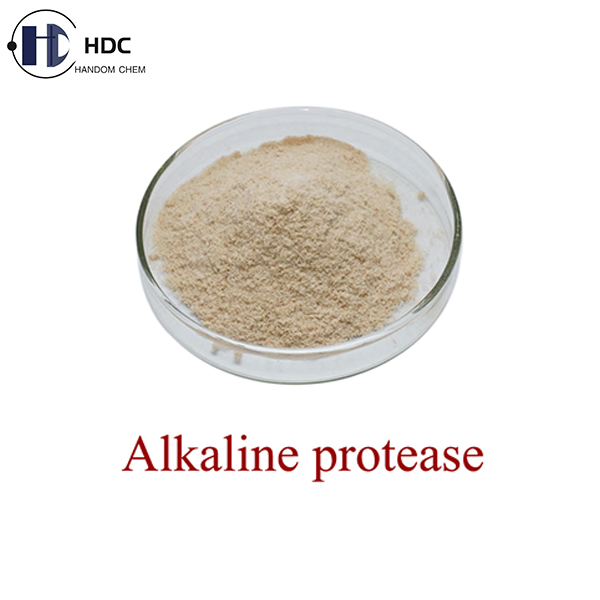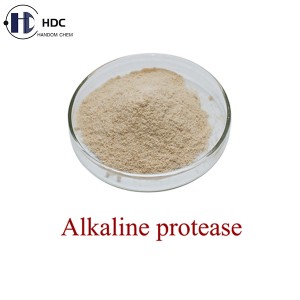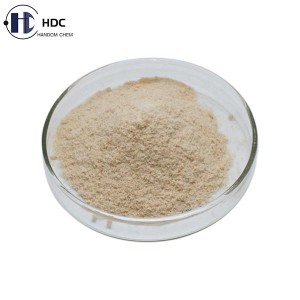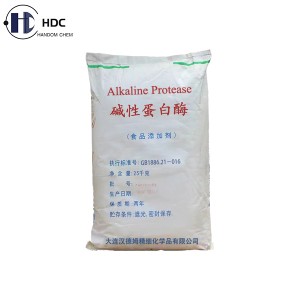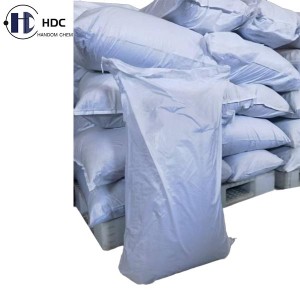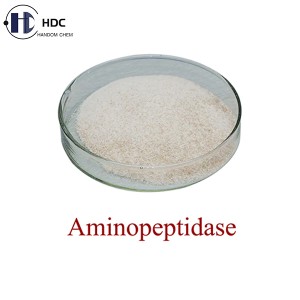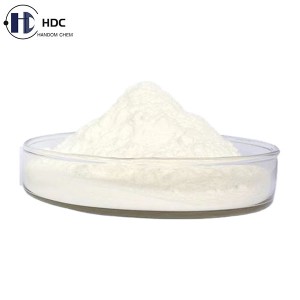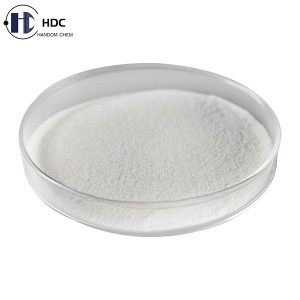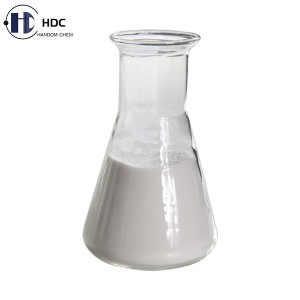Alkaline protease
Brief Introduction:
Our alkaline protease is a proteolytic enzyme produced by deep fermentation, extraction and purification of Bacillus licheniformis 2709, which was selected by bacterial protoplast mutagenesis. Its main enzyme component is Bacillus licheniformis protease.
It is a serine-type endoprotease that can hydrolyze protein molecule peptide chains to generate polypeptides or amino acids, it has a strong ability to decompose proteins and is widely used in food, medical, brewing, washing, silk and leather making industries.
Principle of Enzymatic Hydrolysis:
Under certain temperature, pH value and substrate concentration, alkaline protease can decompose protein to generate substances such as peptone, polypeptide and amino acid.
Definition of Enzyme Activity:
1g solid enzyme powder (under the conditions of 40℃ and pH 10.5) hydrolyzes casein to produce 1μg tyrosine per minute, which is 1 enzyme activity unit, expressed as U/g or U/ml.
Product Specifications:
| Product Name | Product Characteristics | Enzyme Activity Range |
| Alkaline protease | Powder | 50000 U/g ~ 1500000 U/g |
| Liquid | 100000 U/ml ~ 300000 U/ml |
Specifications of our Alkaline protease 200000 U/g (Industrial Grade):
| Test Items | Specifications |
| Appearance | Light yellow brown powder |
| Odour | Unique fermentation smell |
| Moisture | Not more than 8.0% |
| Enzyme activity | Not less than 200000 U/g |
| Lead (Pb) | Not more than 5.0 mg/kg |
| Total Arsenic (As) | Not more than 3.0 mg/kg |
| Salmonella | Negative |
Specifications of our Alkaline protease 200000 U/g (Food Grade):
| Test Items | Specifications |
| Appearance | Light brown powder |
| Odour | Unique fermentation smell |
| Enzyme activity | Not less than 200000 U/g |
| Loss on Drying | Less than 7% |
| Particle Size | ≥80% pass through 40 mesh sieve |
| Solubility | Soluble in water |
| Lead (Pb) | Not more than 5.0 mg/kg |
| Ash | Less than 5% |
| Arsenic (As) | Not more than 3.0 mg/kg |
| Aerobic Microbial Count | Not more than 50000 CFU/g |
| Yeasts & Moulds | Not more than 100 CFU/g |
| Escherichia coli (MPN/g) | Negative |
| Salmonella | Negative/25g |
Application Areas:
1. Meat Protein Processing:
Production of salty flavour base material, amino nitrogen (AN-dry basis) content exceeds 4.5g/100g, good flavour, rich flavour, no bitterness;
2. Bone Protein and Chondroitin Processing:
Replace traditional processing methods to improve product filtration speed, clarity and yield;
3. Collagen Production:
Suitable for enzymatic hydrolysis of fish scales, fish skin or pig and cow hide to produce collagen, producing 1000-3000Da molecular weight collagen, slightly sweet and non-bitter;
4. Washing Industry:
Applicable to medical equipment, laundry detergent, washing powder, laundry soap, strong decontamination, sterilization, safety and reliability. Adding protease to detergent can make sweat stains and blood stains easier to remove;
5. Feed Processing:
Improve feed utilization and reduce costs, enhance appetite and promote animal growth;
6. Textile Industry:
Enzyme-treated wool has a higher tensile strength than conventional wool, and the wool yarn feels soft, it can also be used for degumming silkworms and refining silk;
7. Industrial Membrane Cleaning:
Increase the membrane flow rate and extend the membrane service life.
Recommended Dosage:
Food Field: 0.1‰ ~ 10‰
Industrial Field: 0.1‰ ~ 5‰
Precautions:
※1. Alkaline protease is a biologically active substance, which is easily inhibited and destroyed by heavy metal ions (Fe3+, Cu2+, Hg+, Pb+, etc.) and oxidants. Avoid contact with them during use and storage;
※2. It may cause allergic reactions in people with sensitive skin: close contact or inhalation of small amounts may irritate the skin, eyes and mucous membranes; when using enzyme products, it is recommended to wear protective equipment such as masks and goggles.
Packaging Specifications:
1kg/Bottle, 1kg/Bag, 20kg/Bag, 20kg/Carton, 20kg/Fibre Drum or 25kg/Fibre Drum.
Product Storage & Shelf Life:
1. Store in a cool and dry environment at room temperature, avoid high temperature, humidity and direct sunlight, and the shelf life is 12 months;
2. If stored for too long or in unfavorable storage conditions, the enzyme activity will be reduced to varying degrees, so it is necessary to increase the amount used appropriately when using it. It is recommended to store it at low temperature (0~10℃) for long-term storage.


